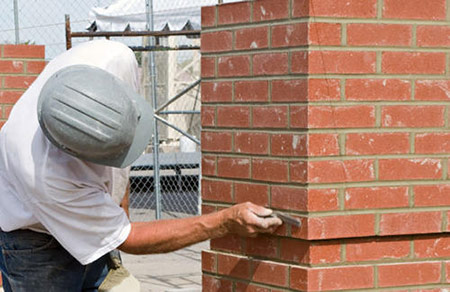Defects of Brick Masonry and How to Solve it
The common defects of brick masonry are described below.
Sulphate
The sulphate salt is present in the brickwork and it reacts with alumina content of cement and hydraulic lime in lime mortar and it causes a noticeable increase in the volume of the mortar. The result of this is the chipping and spalling of the bricks and form cracks in joints and rendering.
This defect occurs in where brickwork is exposed to boundary walls, parapets, etc. or it is in contact with the moisture like manholes, retaining walls, etc.
This problem is solved by using suitable construction and choosing materials that stop the moisture to enter in the brick work.
Crystallization of Salts in Bricks
The defects occur in the masonry made from bricks having excessive soluble salts. When the brick comes in contact with the water the soluble salts are dissolved and it appears in the form crystals on the brick surface. This is also called efflorescence.
This defect causes the disfigured the brickwork and makes look ugly of the brick. The efflorescence is solved by brushing and washing of surface repeatedly.
Corrosion of Iron or Steel
The iron and steel used in brickwork get corroded in the presence of dampness. With corrosion the metal expands in volume and also it can crack the brickwork.
The problem can be solved by encasing the reinforcement or iron in dense cement mortar and provides a cover of 15 to 25 mm around the embedded of steel.
Shrinkage on Drying
The brickwork is swelling with water absorption and shrinks when the water evaporates. The cracks are formed in the masonry joints when it shrinks. If there is a lean mortar is used the cracks are distributed over a large number of joints and if there is a rich mortar there are few cracks but they are wider. These cracks do not affect the structural strength of brickwork and it is easily improved.
All these problems can be solved with excellent quality bricks and protect it from the moisture.

